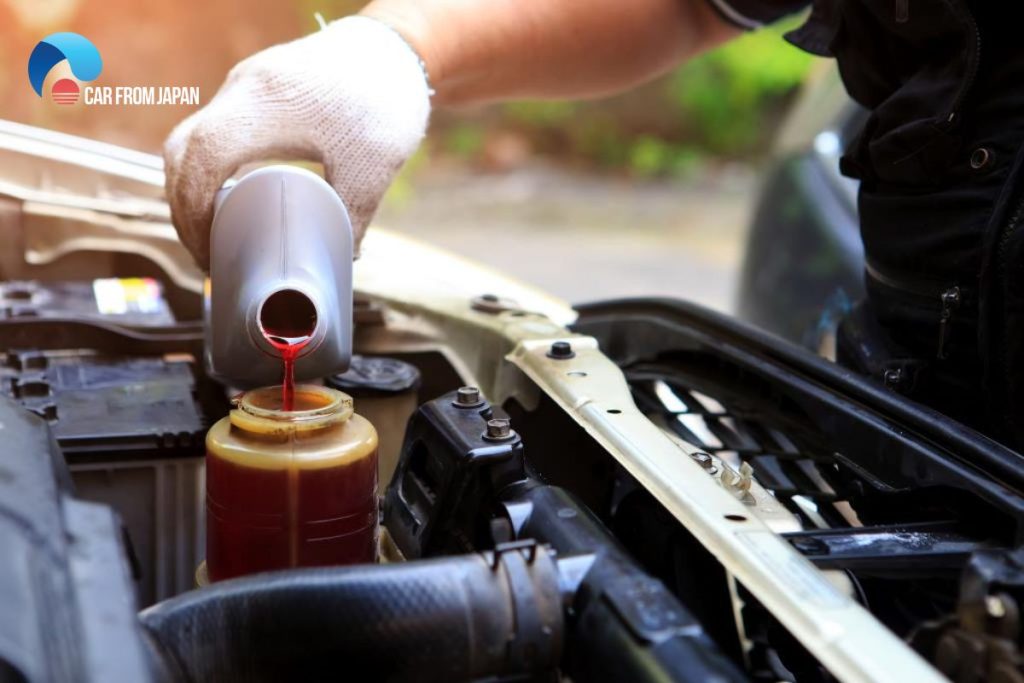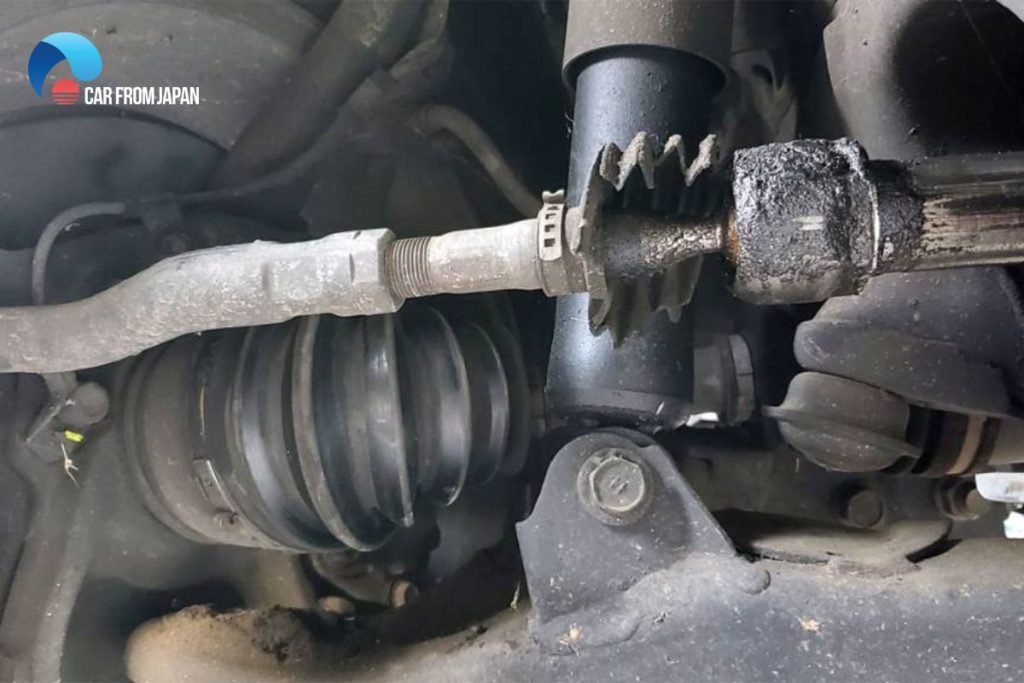Is your steering wheel hard to turn? It can be scary and frustrating when your car doesn’t respond the way it should. This guide will help you figure out why your steering wheel is stiff and what you can do to fix it.
Contents
Why Is My Steering Wheel Hard To Turn?
You might find the steering wheel hard to turn at low speeds, and then the problem miraculously seems to ease somewhat once you speed up, simply because you would most likely slow down while making a turn.
This doesn’t mean that you should ignore the issue of the hard steering wheel, as it’s certainly not going to go away on its own.
When this issue occurs, you can be certain that there is a glitch in your power steering system. It could be the fluid, pump, or serpentine belt. All of these things work together to reduce the resistance of the wheel at the time of turning.
When any or all of these things fail to function properly, you will experience a stiff steering wheel because of the high level of resistance.
Power steering fluid leakage

For the power steering system to work, you need an adequate amount of a special fluid called power steering fluid. This fluid serves as the pass through which power is transferred from the steering wheel to the steering mechanism of the vehicle to turn your wheels. It also acts to lubricate and protect the moving parts within the system from overheating and corrosion.
The most common cause of a hard steering is that there is not enough power steering fluid in the system. This will likely happen when there’s fluid leaking from a crack in the pressurized hose area or if this area gets loose.
Fluid leaks through that crack, thus reducing pressure in the system and making the power steering pump work harder to make up for the loss of pressure. As a result, the steering wheel does not get enough supply of fluid to turn freely, and you will have to exert much more force than usual.
Thickening power steering fluid
If, upon inspection, it’s hard to turn steering wheel but fluid is full, then the next likely culprit is a thickening power steering fluid. This is an unavoidable problem that occurs as time goes by.
Like all other types of fluid in a vehicle, the power steering fluid doesn’t have an infinite life, and it also collects dirt and debris over time. Therefore, it’s crucial to change it regularly as per the manufacturer’s recommended intervals.
Failure to change it within the specified period means the fluid will thicken and lose its ability to lubricate the system properly. A thickened power steering fluid might still allow you to turn the wheel, but you’ll have to use far more force to do so, and a steering wheel hard to turn in incidents that require instant steering might compromise your safety.
The only solution is to flush the old fluid out of the system and refill it with new, fresh power steering liquid.
Malfunctioning power steering pump
The power steering system consists of two main parts: the rack-and-pinion unit and the power steering pump. The power steering pump transfers the steering system fluid to the rack and pinion unit.
When you turn the steering wheel, the control valve in the system lets the fluid flow into the pinion, thus allowing you to turn the wheel without much physical exertion. As the steering wheel turns, the pinion moves against the steering rack, which drives the four wheels to the direction that you are navigating.
In addition, a major role of the power steering pump is maintaining the optimum amount of pressure in the system so that you can turn the steering wheel smoothly without exerting a lot of force.
If the pump malfunctions for any reason, the “power” part of your steering system fails and you will find the steering wheel sticking when turning. A bad pump will not lock the wheel completely, but it will need much more force, which could be dangerous when you need to take a sharp turn in an emergency situation.
Bad steering rack

Your steering rack is a crucial part of the rack and pinion unit. The steering rack’s role is to attach the steering wheel to the mechanisms that turn the wheels to the direction that you’re navigating.
The steering rack is connected to the steering wheel through a series of shafts and U-joints. These parts and the rack itself simply wear out after extensive driving.
If you find the steering wheel hard to turn after just starting the car, but the wheel will gradually turn more smoothly as you continue driving, the problem is definitely with the steering rack.
This happens because the rack warms up as the engine is running, allowing the lubricant to settle in. You can keep driving with this condition, but leaving the deteriorated rack as it is will escalate the problem.
Damaged serpentine belt
Another common cause of steering wheel hard to turn is a cracked or broken serpentine belt. This belt is responsible for many important jobs within the engine, including the operation of the power steering pump. The belt ages and gets worn out over time because it works all the time when you drive the car.
As it becomes loose, cracks, and frays, the steering wheel will start showing signs of stiffness. Delaying the repair or replacement will cause the belt to break, making the steering wheel go kaput.
A loose or broken serpentine belt can cause other components that rely on it to stop working, such as the water pump, the alternator, and the air conditioning compressor. A faulty belt will also cause damage to the pulley, and the car will definitely overheat, which is detrimental.
Tire pressure
Surprisingly, bad air pressure could be a cause for the issue. Improper tire pressure, especially deflated tires, can trigger this problem. All the tires of your vehicle should have been inflated according to the manufacturer’s recommended PSI.
Also, the front-end alignment is another important thing. Uneven wear on the front tires will make your car pull to the side while driving or taking a turn.
Uneven tire tread leads to misalignment of the wheels, which can also be a reason that triggers hard and stiff steering when making turns on the road.
How To Fix A Stiff Steering Wheel?
Fixing a stiff steering wheel depends on the underlying cause. Here’s a breakdown of common issues and potential solutions:

Fluid leakage
Refilling the liquid in the power steering tank will fix the problem for the time being and the car may be driveable for a while, but the leak must be taken care of. Otherwise, it will eventually cause your power steering pump to fail, which can be an expensive replacement.
Power steering pump problems
That said, a pump can fail due to loose or damaged connectors to the pump. So before you get your power steering pump replaced right away, inspect to see if this is the culprit. A pump replacement would cost you between $100 to $200 if you do it yourself and around $500 if you get professional service.
Problems with the steering rack
This can be a more complex issue. A mechanic may need to flush the steering system, repair damaged components, or replace the entire rack.
You will pay anywhere from $650 to $1,200 for a steering rack replacement, of which parts would cost between $350 and $830 and labor would cost between $280 and $360. The prices of parts vary widely depending on your vehicle’s particular make and model.
Worn serpentine belt
A mechanic can inspect the belt and replace it if it’s worn, cracked, or loose. The average cost for serpentine belt replacement is between $110 and $130, parts typically cost around $60, while labor costs would be between $50 and $70.
Tire pressure
Check your tire pressure and inflate them to the recommended PSI (found in your owner’s manual or on a sticker inside the driver’s side door jamb).
How Can I Make My Car’s Steering Tighter/More Responsive?
In addition to the above solutions, you can actively make your steering wheel more responsive day by day to improve your driving experience, no matter if it’s having any issue or not.
- Look for the intensive play in the steering wheel joints
Play in the steering wheel joints is the amount that the components of the steering system are able to move around. Extensive play can be caused by the rack and pinion of the steering system being worn out.
- Get new components for your wheel
You can replace the U-joint and isolator blushing which control the steering wheel responsibility, if there is no problem with the rack and pinion. Consults professionals for further replacement for the low play.
- Check the car suspension
Weak suspension can cause tight and hard-responded steering wheels. Be sure to check it to smoothen your ride.
FAQs on Steering Wheel Hard To Turn
How to avoid hard-to-turn steering wheels?
Some may think that a tight steering wheel is a complicated problem and is hard to handle. However, it is still preventable in some cases. Here are a few ways to protect your steering wheel from becoming stiff and help you notice the problem at the early stage.
– Check tire pressure regularly
– Quickly and carefully identify the damages with tire that can affect the steering wheel
– Check the wheel alignment
– Check the steering wheel lubricating fluid regularly
– Head to the maintenance centers for occasional review and repair.
How often do you need to change power steering fluid?
On average, vehicles need a power steering fluid flush every 40,000-80,000 miles. In some cases, manufacturer recommendations can go even higher or lower than this range.
The recommended routine of your power steering fluid flush depends on the vehicle type, as every steering system and fluid needed on each car model can vary. To get better info on a suitable routine, check your owner’s manual for specific recommendations.
Can a bad ball joint cause stiff steering?
Ball joints are the key components connecting the wheel hubs and the control arms. Ball joints create universal pivoting movement between the hubs and control arms to provide a smooth ride and allow drivers to control their vehicles precisely.
And if the ball joints have issues, it can partly cause hard steering wheels when turning. This depends a lot on how much these ball joints are worn out.
Check out this video from ChrisFix to learn how to get more steering angle so your car can make sharper turns:
Conclusion
A hard-to-turn steering wheel is more than just an inconvenience; it’s a potential safety hazard. By understanding the common causes, from low power steering fluid to more serious issues like pump or rack problems, you can take proactive steps to diagnose and address the problem.
Skipping scheduled servicing coupled with the natural wear and tear of certain components are the most common reasons for a steering wheel hard to turn.
Therefore, your best bet is to keep up with routine maintenance, or else once you find yourself with a sticking steering wheel in the middle of a busy road or on the highway, there would be nothing you can do.




I’m interested to join because I have attended a training on motor vehicle mechanics.. Happy to learn some new ideas thanks much..
When making a very sharp left turn the power steering goes out. Afterwards when turn car off it resets and drives fine?
Power steering hard when the rpm is low, when I raise the rpm it will come easy what’s the problem can someone help me
Please I have a dump 12tires truck but when it on load the steering gets hard even when there is enough fluid and the steering pump is new, but when its empty the steering is free . could it be kinpin problem or what?
My 2018 legacy steering seems stiff to me going in a straight line it’s like manual steering my wrist get tired and ism a 250 pound man..its got the electric steering,not a liquid steering pump…other than that I love the car
Hi sir.
I have a problem with power steering. When I start the car in the morning everything is fine, the steering seems to be working normally, but when I drive to the nearest shop to buy some breakfast 5 mins from my house, I turn the car off and when Ive done with my breakfast and start the car, the steering goes heavy. Change steering pump but same problem occurs. However if the car left to cool down approximately 30mins, then it will work fine.
Hey. I didn’t hear you mention bad battery as cause for stiff steering wheel.
I had the problem of hard to turn steering at low speeds… My mechanic advised me to change the battery which was already showing signs of end of life. After I changed the battery that problem went away completely and it’s now months since I changed the battery. I understand this can happen since the steering wheel being a powered one, at low speeds the battery being bad will have low voltage, therefore supplying low power to the steering wheel.
There are the moments come when steering wheel becomes stiff and hard to turn. Low tire pressure, bad wheel alignment, irregular servicing- could be the cause. The steering wheel always stays flexible under normal circumstances. But when something goes wrong, the steering wheel does not work properly and requires more energy for its normal operation. You need to check power steering fluid regularly, tire pressure from time to time, and replace the belt whenever it is needed in order to keep the steering wheel in a matchless order.
When I turn the wheel of my Nissan car it little bit hard to turn. what is the problem?
After driving for 10 to 15 Km the steering of my car stuffs and becomes hard to rotate, what is the reason behind this.
My car is a KIA Sportage ( 2012 model). The steering wheel becomes tight and hard to turn when the engine is heated. The steering wheel functions well when the engine cools down . What might be the problem?
This is what i am experiencing with my Mazda 3.